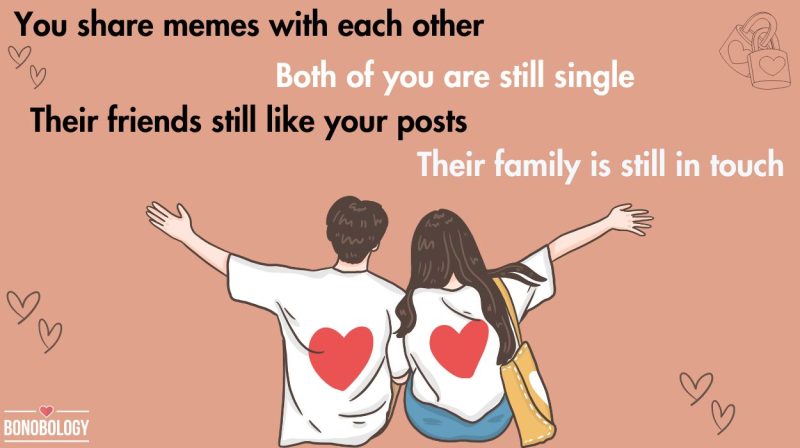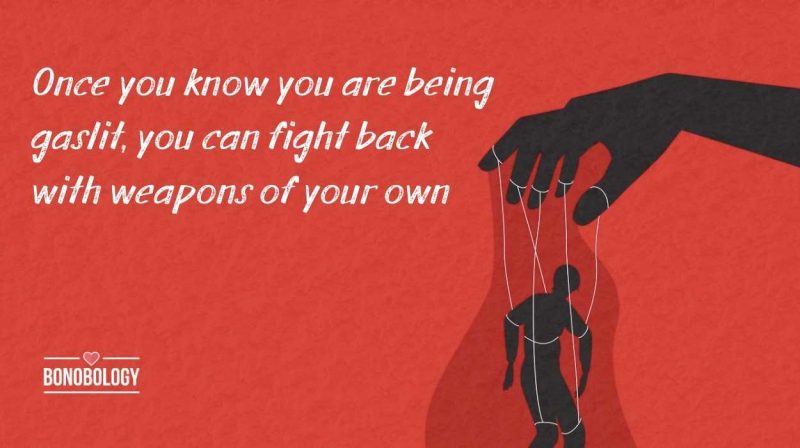When he walks closer to the road on the curb, offers to do all the repairs around her place, or only ever compliments her looks instead of her work, does it stem from a man doubting the woman’s capabilities or are these genuine niceties? Though benevolent sexism may mask itself as “kindness”, it’s still a form of prejudice. However, studies suggest that some women prefer benevolently sexist men.
What is it about the man who always offers to pick up the heavy bags that’s so appealing? And does this act stem from care or is it a remark on her physical weakness and the norm that “women must be cared for and protected”?
In this article, psychologist Pragati Sureka (MA in Clinical Psychology, professional credits from Harvard Medical School), who specializes in addressing issues like anger management, parenting issues, abusive and loveless marriage through emotional ability resources, writes about the paradoxical conundrum of benevolently sexist men being appealing.
What Is Benevolent Sexism?
Table of Contents
We’re all acquainted with the hostile sexism that stems from the belief that “all women are inferior”. The kind that’s usually very aggressive and isn’t hard to miss. Benevolent sexism, on the other hand, can mask itself as kindness or a compliment.
Simply put, it’s the practice of upholding traditional gender norms and the intricacies of patriarchal society through words that may look complimentary but stem from sexist and prejudiced beliefs.
“Women are better personal assistants.” “Let me parallel park for you.” Such remarks can be examples of benevolent sexism. In the workplace, a woman may be solely complimented on the basis of her appearance and not the quality of her work. Men, on the other hand, get complimented for their hard-working attitude. Hence, such backhanded subtle scrutiny often upholds sexist gender roles.
The basis of benevolent sexism is the belief that women must be “cherished” and “protected”. The “chaste daughter” and the “doting mother” must be cared for, since that ideology associates their worth with how they’re related to the man and supports his superior status in society.
Benevolently sexist men, as Donald Trump likes to say, “cherish” women. They also believe they must be “protected”. Such men assume that women do not have the capability of being independent in relationships, hence they must be the “providers” of the house, or must parallel park for them.
Related Reading: 5 Things That Make A Relationship Work | The Basic Essentials
In their 1996 study, psychologists Peter Glick and Susan T. Fiske coined this term. They found that such manifestations of sexism can be more detrimental than hostile sexism since the damaging gender roles are subconsciously reinstated.
Glick and Fiske define benevolent sexism in their study as “a subjectively positive orientation of protection, idealization, and affection directed toward women that, like hostile sexism, serves to justify women’s subordinate status to men.”
Studies find that benevolent sexism in relationships can often result in women sacrificing their career success for relationship security. It’s apparent that the consequences can manifest themselves in many ways. However, as mentioned before, women tend to fall for benevolently sexist men.
Why Do Women Fall For Benevolently Sexist Men?

Glick and Fiske’s study found that women are overtly opposed to hostile sexism, but when it comes to a man who holds a lot of traditional stereotypical qualities like wanting to “protect” the woman, they feel that the man is worth investing in.
This goes back to our survival instincts. Women traditionally nurtured the family and the men were expected to provide for food. Through backhanded compliments or acts of benevolent sexism, the man appears to be someone who is willing to invest in the relationship, which appeals to women.
This belief was further cemented by a 2010 German study, where female undergrad students found benevolently sexist men to be more attractive. They were also perceived to be more willing to invest, commit and spend their resources on their counterparts.
When we speak of the modern world, a lot of women, especially in developing or third world countries, have witnessed many stereotypical gender roles since childhood. They’ve seen their fathers, brothers, and partners around them be very sexist.
Though they’ve been treated unfairly and unjustly, somewhere along the way, women have been conditioned to learn to accept it. As a defense mechanism, they might tell themselves, “At least, he’s willing to provide and care for me.”
This is the faulty core belief that has been instilled in women. This belief stems from the fact that it’s okay if someone else provides for you, since women are not expected to be self-reliant. Or, your self-reliance is not as good as a man providing for you.
When we see signs of benevolent sexism in relationships, we start relating it to people who will be very supportive. Women don’t realize that they’re actually self-objectifying themselves, allowing for restrictions to be put on the way they act and don’t act.
Related Reading: 11 Warning Signs Of A Toxic Relationship
The Damaging Effect Of Benevolent Sexism
Benevolent sexism is a prejudice. It’s based on very rigid and stereotypical notions of gender roles, which end up upholding the unequal patriarchal society we live in.
It may not be hostile or something that looks bad on the face of it. Since we’ve collectively grown up in a culture where one gender provides more than the other, we’ve grown accustomed to it. Our movies romanticize it, our media applauds it. Somewhere within us, that need to “belong” to another is very attractive.
The underside of it is that it’s a very prejudiced way of thinking. It breeds inequality. It encourages one gender to be completely dependent on the other. Secondly, power dynamics start creeping into the relationship.
Sexism is basically proclaiming, “My sex is better than yours.” Hence, “If I raise my voice or if I am condescending toward you, it’s okay because I know what’s better for you,” seems justified. A lot of times, such behavior is blindsiding, especially when it’s through benevolent means.
For example, a woman struggling with a verbally abusive husband may hear, “What’s the issue if he’s slightly abusive? At least he loves you, provides and cares for your family,” if she goes to her parents for help.
A lot of social evils stem from this benevolent practice. When women get attracted to benevolently sexist men, their own cognitive performance suffers. They stop thinking about what’s good for them, or if the behavior of the other person is good for them in the long run.
According to studies, women who fan this behavior become increasingly dependent on men for help. Studies also suggest that it makes women more susceptible to accepting restrictions under the justification of “care and protection”.
The women who seek more relationship security are also more likely to fall for benevolently sexist men. Those women also tend to have less ambitions for themselves.

Benevolent Sexism In Relationships
Benevolent sexism shows a very damaging sexist trend that stems from a question of a woman’s capabilities. It’s like a false protective layer that women envision, which is why they tend to fall for it. When women enter into such a relationship, their own capabilities deteriorate over time.
They may expect the man to meet all of their needs and desires, which reinforces traditional gender roles and makes her feel inferior without her even realizing it. The relationship then becomes lopsided. When the partner doesn’t cater to her needs the way he has been expected to, or when women are not loved the way they want to be loved, resentment takes hold.
There may have been a positive quality associated with sexism but that doesn’t mean it’s a ticket to let go of yourself. Women look at it from the point of view of, “This person is capable of investing in the relationship, he’s working hard for me, he will provide for me.”
But the point is, are you willing to lower your confidence, your self-reliance and your inherent human potential to look after yourself?
Related Reading: 12 Ways To Fix A Toxic Relationship
To The Women Suffering From Benevolent Sexism In Relationships
If you feel like you’re being undermined or patronized, if you’re only getting complimented for your looks and not the quality of your work, or if you have a feeling that your voice is not taken seriously, start noticing the signs and how often it happens.
Secondly, you must look at the behavior of the men you had around you while growing up. If you have any identification of such people in the family of origin, it can explain why you learned to like them. Where there’s learning, unlearning can take place as well.
The way forward is that women must start developing themselves. Irrespective of what your situation is, what the length of your relationship is, you can always start working on yourself. Make self-reliance and independence in your relationship the mantra for your life going forward. At the end of the day, none of us like to be dependent on other people. The biggest drawback is that women tend to not decide for themselves.
They may not find the capability to call things out. However, it’s imperative to understand that there’s no point trying to inherently change another person. You must realize that you can always grow, work on your self-reliance and your own confidence.
Your contribution does not constitute a charitable donation. It will allow Bonobology to continue bringing you new and up-to-date information in our pursuit of helping anyone in the world to learn how to do anything.























Featured
Am I Moving On Too Quickly After Death Of Spouse—How To Decide
15 Signs You’ll Get Back Together With Your Ex
How To Get Over Trust Issues — A Therapist Shares 9 Tips
Learn How To Forgive Yourself For Hurting Someone You Love
How To Find Peace After Being Cheated On — 9 Tips From A Therapist
How To Forgive A Cheating Husband: 15 Helpful Tips
35 Disturbing Signs Of Gaslighting In A Relationship
What Is Narcissistic Ghosting And How To Respond To It
‘My Husband Starts Fights And Then Blames Me’: Ways To Cope
How To Rebuild Your Life After The Death Of A Spouse: 11 Expert-Backed Tips
My Husband Died And I Want Him Back: Coping With Grief
“Am I Unlovable” – 9 Reasons You Feel This Way
11 Signs Your Girlfriend Was Sexually Abused In The Past And How To Help Her
Coping With Breakups: The Must-Have Breakup Apps For Your Phone
15 Signs You Are Wasting Your Time Trying To Get Your Ex Back
Why Are You Obsessed With Someone You Barely Know — 10 Possible Reasons
33 Phrases To Shut Down Gaslighting And Silence Gaslighters
The Emotion Wheel: What It Is And How To Use It To Build Better Relationships
The Role Of Supportive Relationships In Addiction Recovery
7 Signs You Have A Verbally Abusive Wife And 6 Things You Can Do About It